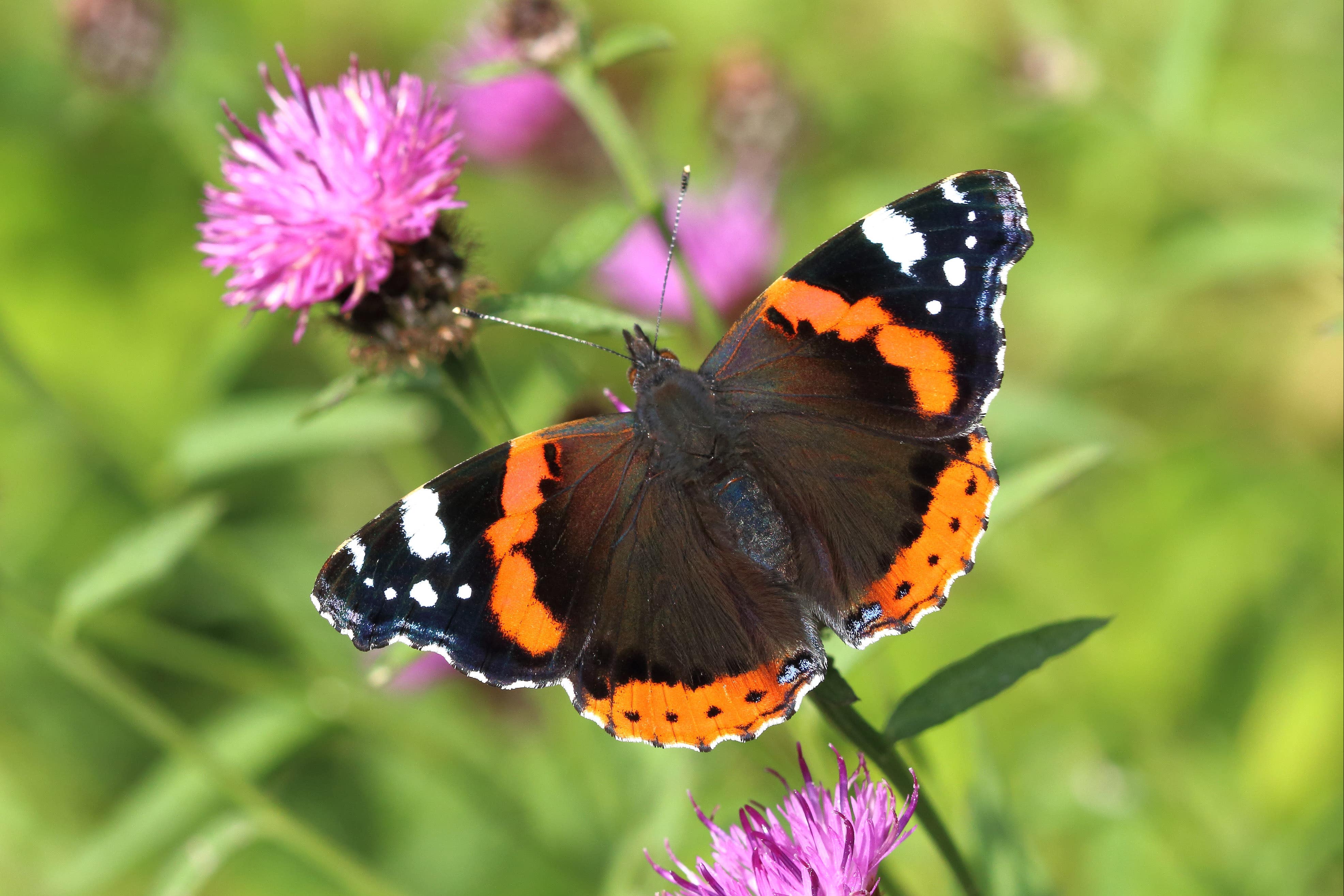Counting butterflies for citizen science project can reduce anxiety – study
Researchers surveyed participants in Butterfly Conservation’s Big Butterfly Count.

Your support helps us to tell the story
From reproductive rights to climate change to Big Tech, The Independent is on the ground when the story is developing. Whether it's investigating the financials of Elon Musk's pro-Trump PAC or producing our latest documentary, 'The A Word', which shines a light on the American women fighting for reproductive rights, we know how important it is to parse out the facts from the messaging.
At such a critical moment in US history, we need reporters on the ground. Your donation allows us to keep sending journalists to speak to both sides of the story.
The Independent is trusted by Americans across the entire political spectrum. And unlike many other quality news outlets, we choose not to lock Americans out of our reporting and analysis with paywalls. We believe quality journalism should be available to everyone, paid for by those who can afford it.
Your support makes all the difference.Taking part in citizen science projects such as counting butterflies can reduce anxiety and boost a sense of connection with nature, a study has found.
Researchers surveyed participants in the Big Butterfly Count in 2022, in which wildlife charity Butterfly Conservation encouraged people to spend 15 minutes outside counting butterflies to help scientists track how the insects were faring.
Surveys completed by 382 people before and after the three-week count period revealed a 9% reduction in anxiety among participants, and a greater sense of connection with nature, as well as noticing butterflies and nature more.
Further surveys completed by 345 people, which were sent five weeks after the count, did not find nature connectedness and reduced anxiety had been maintained.
But they revealed a continued increase in noticing butterflies, and an increase in general wellbeing compared with before the project.
The research, published in the journal Biological Conservation, was carried out by scientists from Butterfly Conservation and the University of Derby.
The surveys revealed people had a range of positive and negative emotions associated with taking part in the count, ranging from joy and fascination to sadness and concern about declining wildlife.
Richard Fox, head of science at Butterfly Conservation, said: “While we have long known that there is a link between nature and human wellbeing, this study is the first to prove that the simple act of looking for and counting butterflies leads to a measurable decrease in anxiety.
“The results suggest that citizen science projects such as the Big Butterfly Count can play a part in improving people’s mental health, as well as gathering important data on how butterflies are faring to inform our conservation work.”
Carly Butler, from the University of Derby and lead researcher on the study, said the benefits of reduced anxiety and stronger connectedness with nature were the same whether people just carried out one 15-minute count or did so multiple times.
“This is key in proving that simple, small pockets of time connecting with wildlife and nature have a profound and beneficial effect on how we feel.”
We’re at a tipping point, nature is in crisis, but we can all do something to help
She said the more intensely people felt the emotions they reported, the more their feelings of closeness to nature and noticing wildlife increased afterwards.
Dr Butler added that participants felt motivated to help butterflies and nature by doing things such as transforming their gardens into butterfly-friendly havens.
Dr Fox said saving wildlife and ensuring nature’s recovery required people to care.
“This study indisputably shows that citizen science activities, such as spending just a few minutes counting butterflies, makes people feel more connected to nature – a vital step in the battle to save wildlife.
“We’re at a tipping point, nature is in crisis, but we can all do something to help.
“Simple acts such as creating wild spaces to provide a haven for wildlife, or planting butterfly-friendly plants in pots on a patio, terrace or balcony, can have a positive impact.”
This year’s Big Butterfly Count, in which people are asked to spend 15 minutes in a sunny spot recording the number and type of common butterflies and day-flying moths they see, will take place from July 12 to August 4.